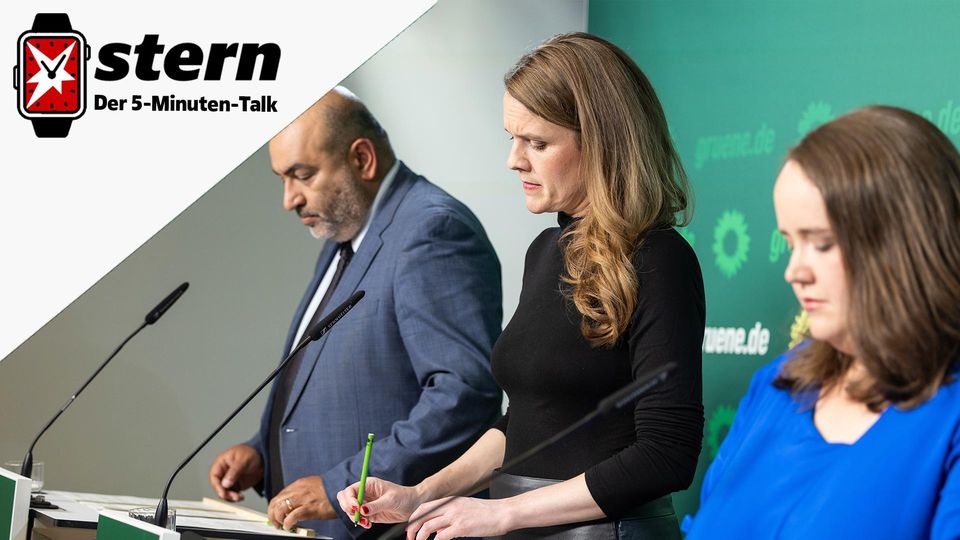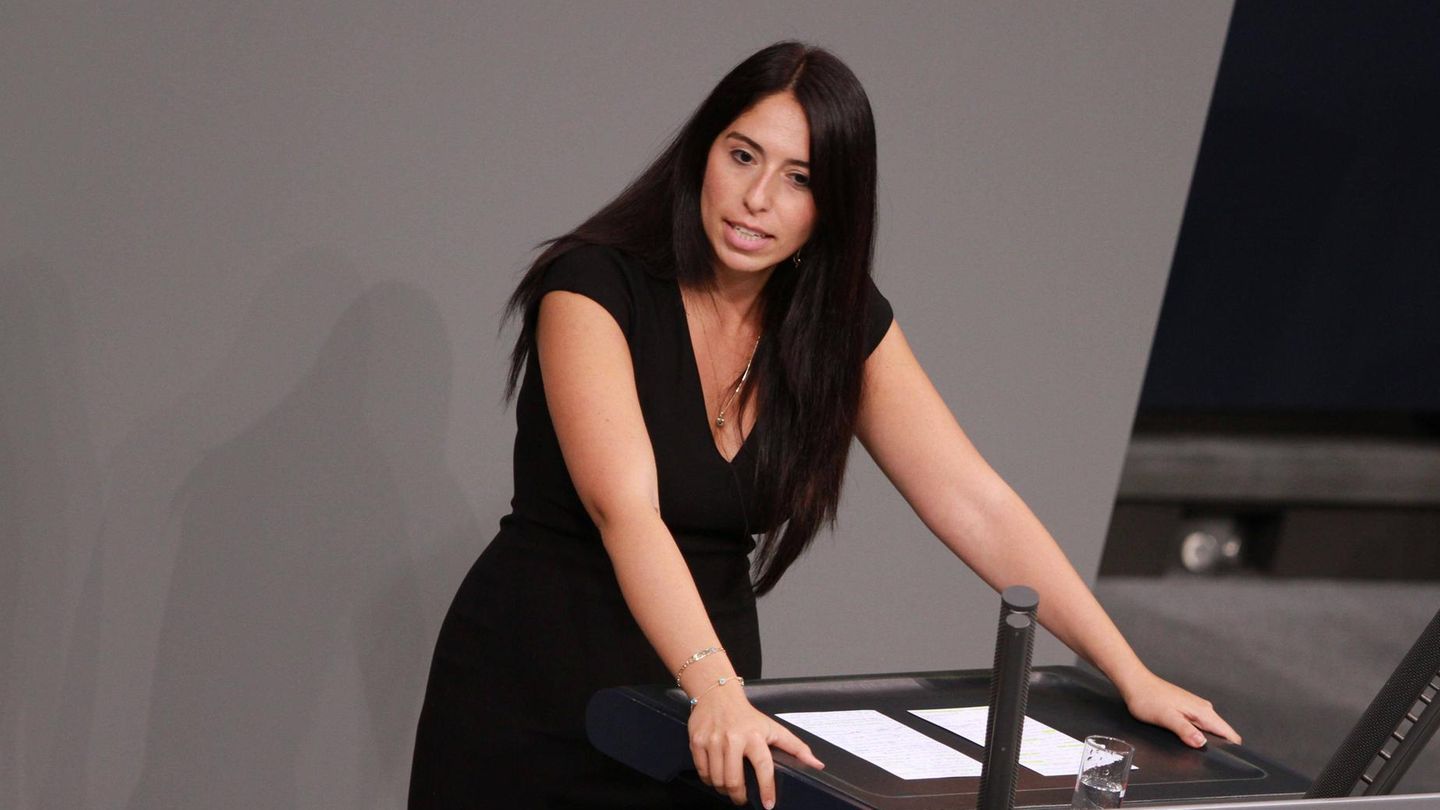In a surprise move, young MP Melis Sekmen has switched from the Greens to the CDU. Her former party is trying to appease her. But the decision points to a bigger problem.
The Union MPs are called to sit down. The group meeting is about to begin. But Melis Sekmen makes slow progress, she shakes hands and is hugged.
On Sunday, the 30-year-old was still a Green. On Tuesday, she arrives in the elevator on the parliamentary group level of the Bundestag and, beaming, turns not to the Greens, but to the CDU and CSU: her first meeting with the Union parliamentary group. Still as a guest, however. But her departure from the Greens is sealed, and she has already applied to join the CDU.
Melis Sekmen’s transfer is a good sell for Union
It is a change that is causing a stir. “A deep disappointment from the Green Party and the Green parliamentary group,” says CDU leader Friedrich Merz. They want to welcome her into the parliamentary group with respect for her decision, and also for her history, “a really impressive history.” For the Union, the change of the relatively unknown MP is excellent news. It is easy to sell: a young woman with a migrant background from a working-class family who is choosing the Union just a few months before the important elections in Saxony, Thuringia and Brandenburg.
For a party that, under chairman Merz, is often accused of having a problem with women. And secondly, the Greens in particular have repeatedly accused it of deliberately polarizing on the issue of migration. Sekmen’s move thus becomes part of a larger narrative, one that is not without its risks for the Greens.
Greens: “Travellers should not be stopped”
They are trying to appease people. The Green Party was apparently surprised by the move, and first heard about the decision through the press. She regrets the decision, said party leader Britta Haßelmann on Tuesday. But she also stressed: “Travellers should not be stopped.”
Behind closed doors, some are more explicit. The loss for the group is not great, after all, Sekmen, who was previously chairwoman of the Economic Affairs Committee for the Greens, had neglected her work and not contributed. She would probably not have been able to get a place on the list in Baden-Württemberg in the next election, one speculates, “and sees it as her last straw.”
In the last election, Sekmen was placed 16th on the list and, according to the polls, this position will probably not be enough for the upcoming federal election. “We have one less problem,” said another Green. CDU leader Merz, however, stressed on Tuesday that they wanted to find a position for Sekmen in which she could contribute her experience. She has already been heavily involved in the area of start-up companies.
So everything is fine? It is not that simple for the Greens, but they are still suffering damage. Also because they suddenly only have 117 instead of 118 MPs. Sekmen’s district association in Mannheim has called on the renegade to give up her mandate in order to allow a Green successor to enter the Bundestag. But that is clearly not an option for Sekmen. And she cannot be forced to do so, the Basic Law gives individual MPs a lot of freedom. According to Article 38, they are only “subject to their conscience”.
Sekmen: Politics must address “uncomfortable realities”
It is rare for MPs to switch factions, and even rarer for them to switch to a completely different camp – only a year ago, Merz had chosen the Greens as his “main opponent”. The last time someone switched from the Greens to the Union was in 1996, when the former GDR civil rights activist Vera Lengsfeld switched sides.
Before Melis Sekmen
These politicians have changed faction and party
What is explosive for the Greens is that Sekmen is justifying her decision with accusations that are already attached to the Greens: they are too ideological, too moralizing, and not paying enough attention to what really moves the hard-working lower middle class. “Politics must have the courage to name uncomfortable realities, even if it does not fit into their own political narrative,” Sekmen writes in her statement to her former colleagues. This requires a culture of debate that “does not pigeonhole people for their opinions or concerns.”
And: “People should be judged by their actions and not by their origins. People who work more should get more out of their work at the end of the day and be able to live better from it.” Sekmen’s father came to Germany from Turkey. On her website she writes: “My parents worked a lot, sometimes in two jobs, just to make ends meet.”
The Greens are currently coming to terms with their losses in the EU elections
Some in the Greens are likely to share at least some of Sekmen’s views on the matter. Agriculture Minister Cem Özdemir said after the bitter losses in the EU elections at the beginning of June: The question is whether the Greens can “address the concerns of the majority of people in the middle of society” and provide “good answers”. He also called for more clarity in dealing with Islamism.

Green Party debacle: Will anyone take responsibility here?
05:24 min
With 11.9 percent of the vote, the Greens’ result was even lower than had been expected beforehand. The party is currently trying to figure out what lessons it wants to learn from the poor result. The “mood” in the country is also being taken into account, said co-party leader Omid Nouripour on Monday. The results will be made public “soon”, “in one or two weeks”.
For Sekmen, this comes too late, either way. For her, it was a long process, she says. For many months, she struggled, weighed things up, and “reviewed experiences of the last few years.” For her, this step is now one “forward.” Into the future, without the Greens.
Source: Stern
I have been working in the news industry for over 6 years, first as a reporter and now as an editor. I have covered politics extensively, and my work has appeared in major newspapers and online news outlets around the world. In addition to my writing, I also contribute regularly to 24 Hours World.




